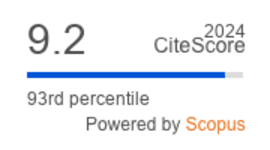COVID-19 Booster Vaccines Administration in Different Countries
DOI:
https://doi.org/10.36877/pmmb.a0000256Abstract
The severe acute respiratory syndrome coronavirus 2 (SARS-CoV-2) that resulted in the COVID-19 global pandemic had consequently led to the development of different types of COVID-19 vaccines, including the messenger RNA (mRNA) vaccines, inactivated virus vaccines, a protein subunit vaccine, and viral vector recombinant vaccines. Countries worldwide started their national vaccination program as soon as the COVID-19 vaccines got approved by the World Health Organization (WHO) under the emergency use listing. This includes COVID-19 vaccines by Pfizer-BioNTech, Moderna, AstraZeneca, Janssen, Sinovac, and Sinopharm. Findings suggested that protection against COVID-19 provided by these vaccines may be waning or that the protection reduces against variants of concern (VOC) or even inadequate protection of the primary vaccination for some risk groups. This led to the development of the COVID-19 booster vaccine that aims to improve and prolong the protection against COVID-19. This review aims to discuss the various COVID-19 booster vaccines that are being authorized and administered, the eligibility criteria for the different booster vaccines, and the extent of protection these booster vaccines provide in the United States (US), Israel, United Kingdom (UK), Singapore and Chile.
Downloads
Published
How to Cite
Issue
Section
License
Copyright (c) 2021 Angel Yun-Kuan Thye, Loh Teng-Hern Tan, Jodi Woan Fei Law, Vengadesh Letchumanan

This work is licensed under a Creative Commons Attribution-NonCommercial 4.0 International License.
Author(s) shall retain the copyright of their work and grant the Journal/Publisher right for the first publication with the work simultaneously licensed under:
Creative Commons Attribution-NonCommercial 4.0 International (CC BY-NC 4.0). This license allows for the copying, distribution and transmission of the work, provided the correct attribution of the original creator is stated. Adaptation and remixing are also permitted.

This broad license intends to facilitate free access to, as well as the unrestricted reuse of, original works of all types for non-commercial purposes.
The author(s) permits HH Publisher to publish this article that has not been submitted elsewhere.



.png)

.jpg)
